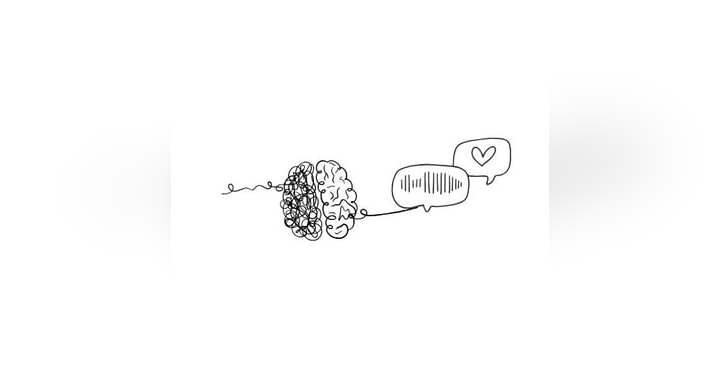Empowering ADHD Women: Time Management Techniques for a Balanced Life
Living with Attention Deficit Hyperactivity Disorder (ADHD) presents a multitude of challenges, including managing one’s time effectively. Time management is crucial for overall well-being, as a lack of organization can cause stress and feelings of inadequacy, contributing to instability in mental health. Join us on a heartfelt journey as therapists and fellow ADHD women, Randi and Jess, share their personal struggles and triumphs, exploring the best ways to achieve success and maintain emotional balance amid a diagnosis of ADHD.
Time Blindness: Why Traditional Hacks Might Not Work for ADHD Women
ADHD sufferers often experience “time blindness," meaning what works for the general population might not yield the desired outcome for them. To empower ourselves to master the clock, let’s accept that our brains require personalized tools and strategies tailored to our unique needs.
As women living with ADHD, Randi and Jess advocate for patience and understanding. Let’s not strive for perfection but rather dedicate ourselves to discovering the time management tactics that work best for us individually.
Chunking, Alarms, and Structured Planners: Hacks to Enhance Time Management
One approach that may resonate with ADHD women is the act of breaking tasks down into smaller, more manageable steps—a technique called "chunking." Visual and digital tools can greatly assist in this method, with devices like clocks, alarms, smartphones, and even Alexa helping to create structured routines and divide tasks into smaller portions.
Another game-changing resource is the app Structured is a daily visual planner that presents tasks as sizable blocks and chunks of time to facilitate easy tracking of tasks and progress.
Embracing the Fluidity of Time and Understanding Different Perspectives
Time, as we all know, is fluid, and our perception of it varies from person to person. When Randi and Jess first became a couple, they had to work through their differing perspectives on time management. It is essential to recognize our own strengths and weaknesses, show empathy towards others, and practice self-compassion as we develop our time management strategies.
Navigating the Complexities of Time Management in Relationships
Dealing with time issues requires empathy and understanding towards both yourself and others. Your personal journey with time management can impact those around you, so it’s essential to consider the expectations established by friends, family, and colleagues in your setting. Clear communication and self-awareness are key, as they help us maintain a balanced, positive relationship with the people in our lives.
Randi and Jess emphasize the importance of setting realistic goals and utilizing practical tools such as timers, apps, Alexa, and therapy to help with time management. For instance, they both use Alexa reminders for critical tasks—such as taking medication or completing homework—to prevent hyper-focus on work or passion projects.
Calendar Magic: Juggling Family Schedules and Couple's Time Management
Jess swears by the power of an old-school paper calendar, which she finds more effective than using a smartphone. When there is a physical, obvious reminder nearby, keeping track of appointments, meetings, and important events becomes much simpler.
Additionally, Jess mentions a digital calendar that consolidates all family members' schedules into a single digital frame. Although some moms struggle to adapt to this system, Randi and Jess suggest researching ways to link the digital calendar to others for synchronization.
They also discuss the concept of a couple's calendar, an aesthetic organizational tool that serves as a communication hub for both partners. It streamlines date nights and reminders for quality time investment, essential for maintaining a healthy relationship.
Balance: Personal Time, Couple’s Time, and Respecting Different Time Views
Managing time effectively demands an understanding of when to allocate personal and shared time for various activities. Having a clear grasp of time management within relationships leads to a more harmonious life, free from unnecessary conflicts.
Having a couple's calendar helps couples manage time better and fosters understanding between individuals with ADHD and those without it. Open communication facilitates a supportive and fulfilling partnership where both parties are better equipped to cope with the unique challenges posed by ADHD.
The conversation demonstrates that a couple’s calendar can effectively nourish communication and support during trying times. Remember, time management is about more than numbers on a clock—it’s about achieving a balanced, healthy lifestyle for yourself and your loved ones.
Conclusion
Time management is a crucial aspect of life for maintaining healthy relationships, work success, and mental well-being, particularly for those living with ADHD. By breaking tasks into smaller chunks, using timers, apps, alarms, and digital tools, and clearly communicating our time management needs and expectations, we can minimize stress and enhance our control over the ticking clock.
Start today by exploring the techniques mentioned in this podcast and identifying your unique time management strengths and weaknesses. Discover and incorporate new strategies into your routine, and embrace the world of time management as your personal ally in the quest for mental wellness and emotional balance. As fellow ADHD women, Randi and Jess join you on this journey, championing your profound resilience and potential for a harmonious, flourishing life.













